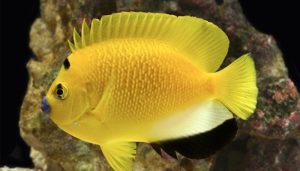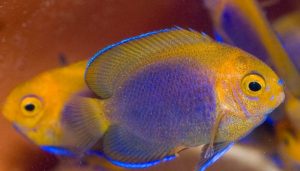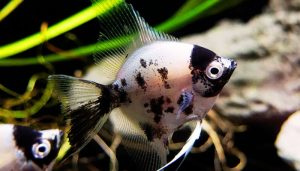Have you ever wondered if guppies sleep at night? It’s a common question among aquarium enthusiasts who want to ensure their fish are happy and healthy. While guppies are known for their constant activity and playful behavior during the day, they need rest just like any other living creature. But do guppies sleep at night?
The truth about guppy sleep habits is fascinating and may surprise you. As diurnal creatures, guppies are active during the day and must sleep at night.
However, their sleeping patterns are quite different from humans or other animals.
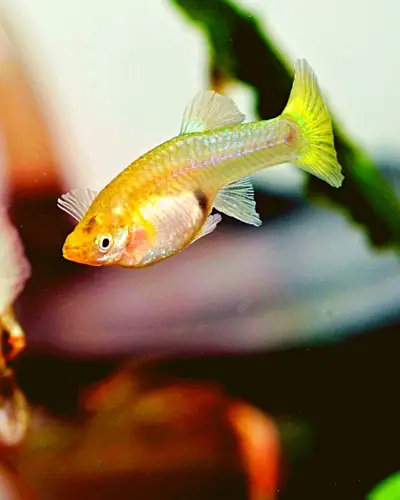
Understanding how much sleep guppies need and when they sleep can help you create a healthy and balanced environment for your fish.
In this article, we’ll explore the surprising truth about doing guppies sleep at night and how you can ensure they get the rest they need to thrive in your aquarium.
So, let’s dive in and discover the secrets of guppy sleep!
Table of Contents
ToggleDo Guppies Sleep?
Do guppy fish sleep? Yes, guppies do sleep. Diurnal creatures are active during the day and need to rest at night. However, guppies don’t sleep like humans, and their sleep patterns differ from other animals.
Guppies may rest at the bottom or on top of the tank and continue to breathe during their sleep. Ensuring that guppies sleep enough is essential, as lack of rest might lead to stress and health problems.
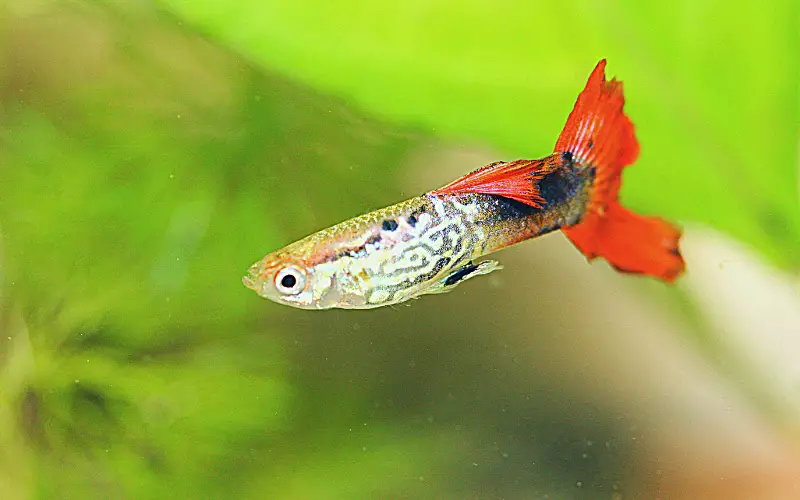
Mimicking their natural environment, providing enough hiding spots, and maintaining proper water quality ensures that guppies get the rest they need.
The recommended amount of sleep for guppies is 6-8 hours a day, and it’s essential to keep the aquarium light on for 10-12 hours a day and turn it off at night to encourage rest.
The Sleep-Wake Cycle of Guppies
Like humans and other animals, guppies follow a sleep-wake cycle, which is influenced by various factors. Their sleep is characterized by reduced activity, alternating with periods of wakefulness. The duration of these cycles can vary depending on environmental conditions and individual differences.
Sometimes, female guppies can lie motionless in their habitat due to pregnancy or illness. This behavior, known as “freezing,” can indicate something wrong with the fish. If you observe a female guppy that appears to be frozen, it is essential to investigate the cause further to ensure the health and well-being of the fish.
When Do Guppies Sleep?
Guppies are colorful and lively fish that captivates the eye. But when do they sleep? Guppies are diurnal creatures, meaning they are active during the daylight and sleep at night, just like humans.
Sleep is essential for all living beings, including guppy fish. While guppies do not have eyelids to close their eyes, they still enter a state of rest where they become less responsive to their surroundings.
Guppies prefer to sleep in darker environments, so turning off the tank lights at night is recommended for a peaceful slumber. It is essential to provide guppies with the rest they need to sleep to thrive and maintain their vibrant colors and energetic behavior during the day.
How Long Do Guppies Sleep?
Like most fish, guppies do not sleep the same way humans do. Instead, they go through periods of rest where they become less active. During these periods, guppies may minimize their movements or find a hiding spot to rest.
However, their eyes remain open and can still respond to their surroundings. Guppies do not have a defined sleeping pattern but often rest when the natural light is dim, such as during the night or in darker areas of the aquarium.
The amount of rest or “sleep” guppies need can vary, but on average, they may rest for several hours throughout the day. It is essential to provide guppies with an environment that mimics natural light cycles and offers areas for them to rest undisturbed.
Where Do Guppies Sleep While in the Tank?
Where and how do guppies sleep? Guppies are small tropical fish known for their vibrant colors and playful behavior. When it comes to sleep, guppies have different preferences.
Some guppies are known to sleep near the bottom of the tank, where they feel safe and secure. These guppies can often be seen resting on the substrate or hiding in plants or decorations. Sleeping at the bottom of the tank allows them to conserve energy and escape any potential predators swimming above.
However, not all guppies sleep at the bottom of the tank. Some may sleep closer to the surface or in the middle of the water column. Ultimately, the sleeping location of guppies may vary depending on factors such as their personality and environmental conditions within the tank.
How to Know if Your Guppy is Sleeping?
To tell if your guppies are sleeping, there are a few signs you can look for. First, observe their behavior. If they are resting near the surface or at the bottom of the tank, it could be a sign that they are asleep.
Guppies also tend to become less active and swim slower when numb. Another indicator is their eye movement. If their eyes are closed or barely moving, they are in a sleep state.
Additionally, guppies may change their color patterns while sleeping, becoming duller or paler. However, it is essential to note that guppies do not have eyelids, so their eyes may not ultimately close during slumber.
Understanding the guppies sleeping patterns of your guppies can help you provide them with a suitable environment and ensure their well-being.
Is it Normal for Guppies to Sleep at the Bottom of the Tank?
Seeing guppies sleep at the bottom of the tank is not unusual. This behavior is normal and is quite common among these fish. Guppies are known to be active during the day, constantly swimming around and exploring the tank.
However, during the night, they tend to become more dormant and seek a safe spot to rest. The bottom of the tank provides them with a secure place where they can feel protected and hidden from potential predators.
Pregnant guppies are more likely to sleep at the bottom, as they are often more tired and need a comfortable resting spot. So, if you notice your guppies sleeping at the bottom of the tank, there is no need to worry, as it is a natural behavior.
Factors Influencing Guppy Fish Sleep
- Light and Darkness: Guppies are diurnal creatures, meaning they are most active during the day and tend to rest during the night. Maintaining a consistent light-dark cycle in their aquarium replicates their natural environment and encourages healthy sleep patterns.
- Water Quality: Poor tank water conditions can lead to stress in guppies, affecting their sleep. Regular water changes, proper filtration, and appropriate water parameters are crucial for their well-being and restful sleep.
- Social Environment: Guppies are social fish, and the presence of tank mates can influence their sleep. A harmonious tank community can reduce stress and promote better sleep.
- Temperature: Guppies are sensitive to temperature fluctuations. Ensuring a stable and suitable temperature range in their habitat helps them feel secure and aids in maintaining regular sleep patterns.
Note: It is essential to avoid adding excessive light to your tank to prevent the growth of algae. Too much light can stimulate algae growth, harming the aquatic environment and the fish. It is recommended to provide the appropriate amount of light needed for the plants and fish in your aquarium and to monitor the light levels regularly.
The Unseen World of Guppy Dreams
The precise nature of guppy dreams remains a mystery, as we cannot directly observe their goals like we can in mammals. However, research suggests that guppies, like many other animals, experience rapid eye movement (REM) sleep, a phase associated with vivid dreams in mammals.
The Importance of Sleep for Guppies
Sleep plays a vital role in guppies’ overall health and well-being, just as it does in humans. During sleep, guppies consolidate memories, heal and repair their bodies, and regulate physiological functions. It is essential for growth, reproduction, and maintaining a robust immune system.
Creating an Ideal Sleep Environment for Guppies
To ensure that your guppies enjoy optimal sleep and thrive, consider the following tips:
– Provide Ample Hiding Spots
Guppies seek shelter in vegetation and underwater structures to protect themselves from predators in their natural habitat. Including various hiding spots in their aquarium recreates this environment and gives them a sense of security during sleep.
– Maintain Proper Lighting
Having a regular light-dark cycle helps regulate their internal clocks. Use a timer to simulate day and night, providing approximately 10-12 hours of light and 12-14 hours of darkness each day.
– Monitor Water Quality
Regularly test and maintain water parameters to ensure a clean and healthy environment. High water quality reduces stress and promotes better fish sleep.
– Keep Suitable Tank Mates
Choose tank mates compatible with guppies and create a peaceful tank community. A harmonious environment lowers stress levels and contributes to restful sleep.
– Optimize Water Temperature
Maintain the water temperature within the recommended range for guppies, generally between 72°F to 82°F (22°C to 28°C), to keep them comfortable and stress-free.
Do Guppies Sleep Upside Down?
Like most fish, guppies do not sleep the same way humans do. They do, however, have periods of rest where they are less active. During these times, guppies can often be seen floating near the surface or resting on the aquarium floor.
While they may appear to be sleeping upside down, this is untrue. Guppies do not have eyelids and cannot close their eyes, so they are always alert to their surroundings.
They may rest in unusual positions, such as upside down, but this results from their relaxed state. Providing a peaceful and comfortable environment for guppies is essential to encourage proper rest and overall well-being.
How Long Does a Guppy Fry Sleep?
Like adult guppies, guppy fry needs sleep to stay healthy and vibrant. However, the sleeping habits of guppy fry may differ from their adult counterparts. Guppy fry tends to sleep more during their first few weeks of life as they are still growing and developing.
They often rest at the bottom of the aquarium or hide among plants to feel secure while they sleep. The amount of sleep they require can also be influenced by the hours of light in the aquarium.
It is recommended to provide a regular day-night cycle of around 10-12 hours of morning and 12-14 hours of darkness to mimic their natural habitat. By ensuring that guppy fry has a quiet and dimly lit environment, they can get the sleep they need for proper growth and development.
How Much Sleep do Guppies Need?
Guppies are diurnal and need 6-8 hours of sleep a day. To ensure they get enough rest, mimicking their natural environment is essential. Guppies typically sleep every night, just like humans. They have a sleep cycle where they alternate between periods of rest and activity.
However, the exact amount of sleep can vary between individuals. You must keep the aquarium light on for 10-12 hours daily and turn it off at night. Guppies need to sleep to rest at the bottom or on top of the tank when the sun goes down.
If your guppy sleeps at the top of the tank, it may indicate poor water quality or lack of oxygen. Give your guppies the sleep they need to thrive and keep their fish tank environment conducive to rest.
Commonly Asked Questions (FAQs)
How can I tell if my guppy is sleeping or dead?
Observing their behavior and physical appearance lets you tell if your guppy is sleeping or dead. It is likely finished if the guppy is floating at the surface, not moving or responsive. However, if the guppy rests at the bottom or in a hidden spot, it is probably sleeping.
Can guppies sleep like humans with their eyes closed?
No, guppies do not have eyelids like humans, so they do not close their eyes while sleeping. Instead, they enter a state of rest where they are less active and responsive.
How can I help my guppies sleep better?
To help your guppies sleep better, you can provide them with a calm and quiet environment, regulate the light they receive, and maintain good water quality. It’s also vital to ensure they have enough hiding places and suitable tank décor for them to feel secure.
What is the sleeping pattern of guppies?
Guppies do not have a specific sleeping pattern like humans do. They usually sleep in short intervals throughout the day and night. Their sleep cycles may be influenced by factors such as the presence of natural light and their overall activity level.
Do guppies sleep when they are sick?
Guppies may sleep more or less when sick, depending on the nature of their illness. Some illnesses or stressful conditions can cause changes in their sleep patterns. If you notice that your guppy’s sleep habits have significantly changed, it may be a clear sign that something is wrong, and you should consult a veterinarian.
Can guppies sleep while floating in the water?
No, guppies do not typically sleep while floating in the water. If you notice your guppy floating at the water’s surface and not moving, it may indicate a severe health issue or even death. It’s essential to take immediate action and seek help to ensure the well-being of your guppies.
Do Guppies Have a Sleep Pattern?
Yes, guppies have a sleep pattern and usually sleep at night.
How Can I Tell if My Guppy is Sleeping or Dead?
Usually, when a guppy sleeps, it will remain still but respond to external stimuli. The guppy will show no signs of movement or response if it is dead.
Do Guppies Sleep Every Night?
Guppies typically sleep every night as part of their natural sleep cycle.
What Should I Do if I Find a Dead Guppy?
If you find a dead guppy, removing it from the tank is essential to prevent any potential health issues for the other fish.
Conclusion
So, do guppies sleep? Though small and seemingly simple, guppies lead fascinating lives with their sleep patterns and habits. As responsible pet owners, it is crucial to provide them with an optimal sleep environment to ensure their well-being and longevity. By understanding the factors influencing their sleep and making necessary adjustments to their habitat, we can promote healthy sleep and happy guppies. Remember, a well-rested guppy is a thriving guppy!
You might also like
- How to Make a Guppy Breeding Tank: 7 Easy Tips (Explained)
- 5 Secrets to Achieving Ideal Guppies Water Parameters at Home!
- Raising Guppies in Pond: A Comprehensive Beginner’s Guide!
- Do Guppies Give Birth All at Once: Shocking Myths Busted!
- When to Separate A Pregnant Guppy Fish: (Comprehensive Guide)
- Can Shrimp and Guppies Live Together: (The Shocking Truth)
- Guppy Grass Care: A Step-By-Step Guide for Growing & Caring
- Best Water Temperature for Guppies Breeding Success!
- Do Guppies Eat Aquatic Plants: 7 Best Live Plants for Guppies Tank!
- Do Rope Fish Eat Other Fish: The Answer May Surprise You!
- Can 3 Male Guppies Live Together: (5 Expert Tips Say Yes!)


